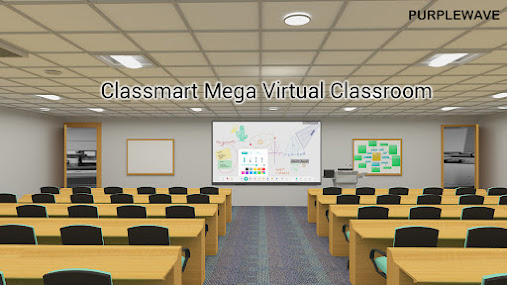Classmart Smart Virtual Classroom Providers In India
The Virtual Classroom is the genuine, unmistakable, accessible spot to instruct and to learn. It is where Teachers connect with understudies, support interest from the whole class and develop the considerations and thoughts raised by understudies. These connections can't be copied in a Virtual Classroom.
Instructor to-understudy collaborations, alongside understudy to-educator and understudy to-understudy cooperation’s, are all essential for the growth opportunity. Unconstrained and irregular cooperation’s through questions or expressed feelings are essential in introducing a full extent of the subject being educated. In the virtual homeroom, the educator is typically ready to cooperate with just a single understudy at a time and it is from behind a PC screen. Bringing up issues and paying attention to other understudies' viewpoints ordinarily happens through bunch message loads up, rather than continuous, eye to eye correspondence.
Teacher-To-Student Interaction
Teachers are not
instructed essentially to give statistical data points to their understudies
and afterward look at for the afternoon. The abilities of an educator go past
the material to likewise include their capacity to lead understudies, channel
through material when it isn't generally welcomed by a class, change up
material if necessary and even handle irregular inquiries that might make the
need to painstakingly investigate an idea more. Educators are intended to have
in a genuine existence homeroom setting where eye to eye cooperation’s with
understudies set the dynamic for the plan and execution of the day's illustrations
and materials. Homeroom educating is where everything began, and it keeps on
being where educators foster their styles of teaching.
Student-To-Teacher Interaction
In a smart virtual classroom,
the educator is frequently alluded to as the course teacher or mediator,
somebody who basically screens the action of a web-based homeroom to guarantee
that understudies sign in and complete tasks on time. Tasks are reviewed and
criticism is given by means of messages, messages and periodic video talks. There
are no private balanced gatherings, conversations concerning materials or
communications with the educator as there are in a standard regular classroom
setting.
Any teacher who has shown in a real life classroom setting realizes that understudies can have an impact on the manner in which daily's illustration goes. An understudy can pose an inquiry connected with the topic that makes the need to stop briefly and investigate a completely unique point. Similarly, understudies can play off of each other. For example, maybe the educator poses an inquiry and the response offered by an understudy prompts an extra response or question from another understudy. In a little while, the educator has directed the understudies' considerations and inquiries into a more profound investigation of the topic, assisting them with acquiring knowledge; in any case, that is not prone to occur in the virtual classroom.
For More Details Contact: +91
9650019378 Or Ref Link




Comments
Post a Comment